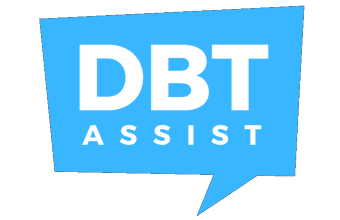Due to an increased demand for DBT programs in the Gold Coast/Tweed Heads region, the Australian DBT Institute has recently announced a partnership with Essentia Health to deliver DBT programs and our online DBT programs throughout the region.
2020 is the sixteenth year DBT programs have been led by Institute Director Dr Peter King. The Institute provides a model of best practice which has been replicated around Australia where Dr. King, through the Institute, supports the development of DBT programs, educates staff and evaluates Australian DBT programs.
The Australian DBT Institute will be facilitating both an Associate’s and Fellowship Program from on the Gold Coast from August 2020. Expressions of interest are now being taken via online submission at http://dbt.cmhe.org/about-cmhe/fellowship-associate-program/
Please find below further details regarding the Australian DBT Institute’s Programs which will be delivered from our new clinic location which will be announced in late October 2020.
DBT Group Program (online program)
Our DBT group program is delivered both in person and online. The Australian DBT Institute program has been developed by Dr. Peter King who is the developer of DBT-TI. DBT-TI is a Trauma Informed approach to DBT which follows the evidence base of DBT and safe trauma therapy approaches. The approach has been found to be successful in Australia, South Africa and Thailand where Dr. King develops mental health professionals in the DBT-TI approach.
Individuals who enter our programs are in the Stabilisaiton Phase of treatment and may have a diagnosis of Borderline Personality Disorder, PTSD, Complex PTSD or an Acute Stress Reaction. Programs run for 30 weeks in 10 week blocks with 2 weeks break in between each 10 week block. Participants can only enter the program once they have completed the 2 week Foundation Phase (NO FEE CHARGED FOR THE FOUNDATION PHASE)
Foundation Phase: from 1st August 2020 (NO FEE)
– Program Overview
– Treatment Targets & Goals
2020 Term 3: Starts October 14th 2020 (Online Only)
– Mindfulness Skills
– Managing Crisis Situations
2021 Term 1: Starts 2nd February 2021 (Online Group)
– Mindfulness Skills
– Managing Emotions
2021 Term 2: Starts 26th April 2021 (Online Group)
– Mindfulness Skills
– Managing Relationships
All participants agree to the following expectations of our program:
– Attend foundation sessions with our research assistant
– Attend group sessions and individual therapy sessions
– 2 weeks leave in between each 10 week term
– Attend additional follow-up sessions with our research assistant
– Complete your weekly homework tasks
– Complete your DBT-TI diary on a weekly basis
– Abide by the guidelines of the program including: not entering relationships with other participants, not attending intoxicated or hung over and being on time
– Payment of weekly fees of $170 for individual therapy and $50 for group
Register your interest via email to Carlie – email info@dbtinstitute.com.au
Graduate Program – Online Program
- Monthly on Wednesdays: from February 2021 (Online)
The Australian DBT Institute adopts a Stabilisation Based Therapy approach to supporting clients who have graduated from our DBT programs. On graduation clients are also able to attend our monthly graduate groups are available online using GoToMeeting. Graduate groups may be larger than usual DBT groups and focus on Mindfulness Skills and reviewing a range of DBT skills each session. Monthly groups cost $30 for a 90 minute session.










